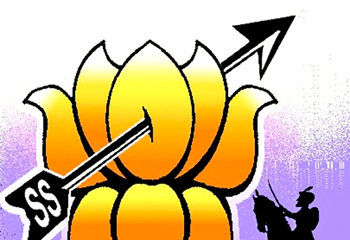Mumbai, Jun 10: Centre's approval for the 35-km long coastal road connecting north and south Mumbai, has resulted in both the ruling parties in Maharashtra- BJP and Shiv Sena- claiming credit for the project.

"We should be credited for the completion of the project and for bringing a smile on the faces of people and we ..
"It was the Shiv Sena that first announced the coastal road project. We even held detailed discussions with experts to understand how our dream could come true.
"This project needs to be completed by the state government with the help from the Municipal Corporation of Greater Mumbai (MCGM). This will be possible only when the Centre is ready to chip in whenever required," it said.
Citing the example of Mumbai-Pune Expressway, the Sena said even as the project was the dream of late Sena Supremo Bal Thackeray, he chose to give the credit to Nitin Gadkari.
The Mumbai-Pune Expressway was completed when the Sena-BJP first came to power in the state. This project was the dream of late Balasaheb Thackeray.
"But when the project was completed, he chose to give its credit to then state minister Nitin Gadkari, who had worked very hard for it," the Sena said.
However, state Revenue minister Eknath Khadse says nobody except the BJP should take credit for the project.
"This project would not have got an approval without the consent of the Environment Ministry that is in control of the BJP. Nobody should try and take unnecessary credit for the coastal road project as it is our party that is ruling at the Centre. Let the people decide who should get the credit," Khadse said yesterday.
Earlier, Yuva Sena chief Aditya Thackeray had said that the approval has been received after Shiv Sena MPs sat outside the Parliament demanding clearance.
On Monday, the Centre had approved the project that would connect Nariman Point and Kandivali in North Mumbai. The project, expected to cost around Rs 10,000 crore was conceived by the previous Congress-NCP government.






Comments
Add new comment